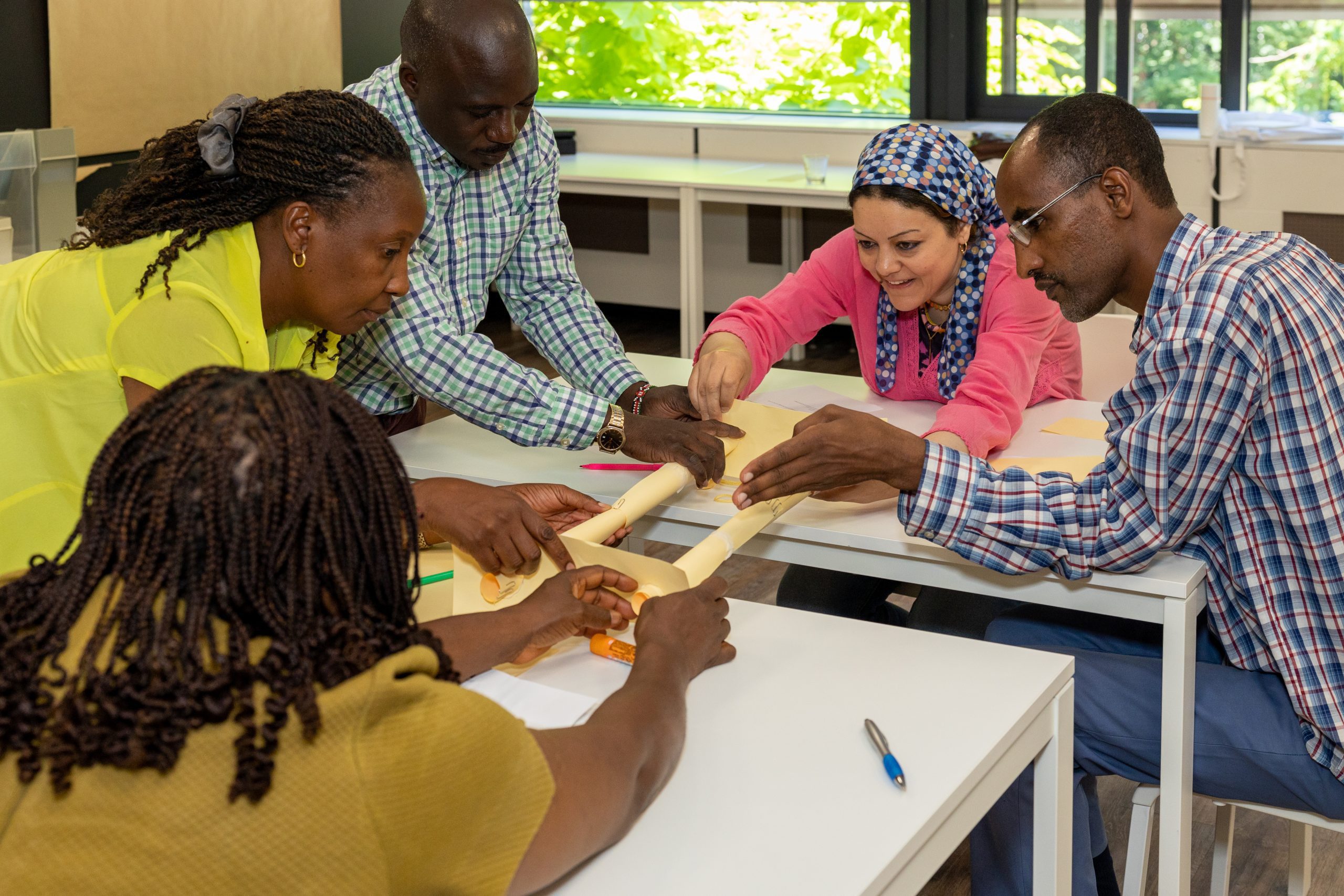iCRA expert bite #1: How to get the biggest compliment a trainer wishes for?

4 practical tips to ensure students do apply what they learned
The biggest compliment for a trainer is that a participant tells you that they confidently applied what they have learned during you training and because of that they perform better in their work.
However, easier said than done. I often hear from trainers and lectures that they struggle organizing practical exercises in their training due to time pressure. Also, they say they encouraged trainees to apply what they learned after the training but that they are unsure if that actually happens.
Tip 1: Space your training
Plan your training in such way that there is time between the various sessions. So instead of four days training in a row, offer for example two slots of two days spread over one month. Any other spacing might also work as long as it provides your participants time to try-out what they have learned in their professional lives. Providing a concrete practical assignment after each training session and making it an official part of your training (and condition to get certificate) will offer a small extra encouragement that will help your trainees in their real-life application.
If spreading your training in time is logistically challenging, you could consider taking a blended training approach combining face-to-face group sessions with online sessions participant can join from home or workplace without traveling. Taking a blended approach increases significantly your flexibility to adapt to trainees needs.
Tip 2: Organize reflection and feedback
We tell our kids to spread their homework over several times instead of cramming it into theirs head just the day before the test, because this way they remember it better. Science on brain based learning shows us that the same applies to adults learning. Spacing the training time will allow you to integrate several feedback and reflection loops into your training. You help your participants reflecting on what went well and what can still be improved. Based on your feedback and that of their peers, participants improve their performance step by step. Repetition will help to firmly anchor their new abilities.
Tip 3: Use a checklist or guideline
During your training you share theory with your trainees. This may include tips, tricks, models, tools and more. Translating this information into concrete actions during a real-life setting can be challenging for participants and be a hurdle for application in real-life. As a trainer you need to make the road to application as smooth as possible for your participants. Your trainees need to feel confident enough to apply their newly learned skill in a real-life. You help them by sharing exactly how to apply your theory effectively. So, provide a clear guideline or checklist that summarizes the theory point-by-point and specifies what they need to do at different steps.
Not only does a checklist guide trainee during the practical exercise in your training. It also offers a memory aid and a tool for self-assess their performance as they apply it in a real-life setting.
Tip 4: Include a rerun in your training
Confidence is key for people to try out new things. In tip 3 is expalined how a checklist can help participants to apply what they learned in your training. More is needed though, to boost the confidence your participants. Providing a success experience during your training is the game changer for getting results. Experiencing ‘I can do it!’ during your training will significantly increase the chances participants will also put it into practice in real life.
So, you need to organize success experiences for participants in your training. This why it is important that after a first round of practice, they receive feedback based on the checklist and get the opportunity improve themselves in a rerun. In this rerun, participants will experience the success that create the confidence they need for application in their real-life workplace. So, include reruns and celebrate their successes!
Do you like this iCRA expert bite? Please follow us on social media to get our tips & trics!
This iCRA expert bite has been written by Mariette Gross.
Do you want to receive regular tips and tricks on effective action learning and partnership building? Subscribe here.
These tips, based on the model of De Galan, we also apply in our iCRA courses.

Recent Comments